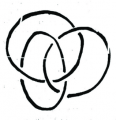
DOWNLOAD
(.pdf)
One of the classics in the 1960s in Hegel’s scholarship, an original analysis, cast in dialogue form.
In recent years, Hegel has been receiving attention from American philosophers, including Robert Brandom and Robert Pippin. For much of the 20th century, Hegel and his 1807 Phenomenology of Spirit were little studied in the United States, given the prevalence of analytical philosophy and positivism. Jacob Loewenberg was one of the few American philosophers who devoted serious attention to Hegel during the years from the end of WW I through the mid-1960s. Loewenberg (1882 — 1969) immigrated to the United States in his early 20s and went on to study Hegel and receive a PhD in philosophy under Josiah Royce at Harvard. He taught at the University of California Berkeley for much of his career.
In 1929, Loewenberg published a book of selections from Hegel which was used widely in American universities. In 1965, age 83, Loewenberg published his book Hegel’s Phenomenology: Dialogues on the Life of the Mind, a study of Hegel’s forbidding Phenomenology of Spirit. In his memoir Thrice-Born: Selected Memories of an Immigrant, Loewenberg described his long-delayed project of writing a study of the Phenomenology. Referring to himself in the third person, Loewenberg wrote,
“What kept him back from uttering it was the difficulty of hitting upon a suitable mode of procedure. He was reluctant to write an erudite commentary. For the exacting labor of exegesis, involving close attention to technical minutae, he had neither taste nor talent. What he aspired to was a task no less exacting, namely the task of capturing the spirit of a work notorious for being bewildering in matter and forbidding in manner.” (“Thrice-Born”, p. 187)
In his memoir, Loewenberg also succinctly explained the view of the Phenomenology he would present in his book. “It was his aim, without tracing the work to its historical roots, to represent it as a sort of chronicle, Homeric in scale, of man’s spiritual odyssey. Here, he held, may be found generically portrayed the multiform career of human consciousness.” (“Thrice-Born”, p.188)
Loewenberg’s book on the Phenomenology is written in the form of a dialogue between two friends, Hardith and Meredy. (Years earlier, Loewenberg had written a book, Dialogues from Delphi on the philosophy of art with these individuals as the interlocutors.) Hardith is shown in the Loewenberg’s Phenomenology as an educated layman who is not a specialist in Hegel’s book while Meredy is a Hegel scholar and probably is more representative of Loewenberg. Hegel’s book is discussed and debated from various perspectives by the two friends.
The book recognizes the notorious difficulty of Hegel in terms of thought, method, language, and every other way. It describes the Phenomenology is perhaps the most difficult of the classical works of philosophy to understand. Thus the book does not discuss the formidable technicalities of the Phenomenology, but instead tries to present in the discussion between friends and understanding of what the book tries to do, of why it is important, and of how it may be deemed to succeed or fail in its aims. Loewenberg’s book is difficult enough in itself, but its aim is to provide a point of entry to the Phenomenology much more than a full commentary for Hegel scholars.
The book consists of 26 chapters which follow the sequence of the Phenomenology from its celebrated Preface through the book’s end. The book is organized in four parts paralleling the Phenomenology under the headings “Consciousness”, “Self-Consciousness”, “Reason”, and “Spirit”.

can you re-upload the book? the link does not work.
LikeLike
Done
LikeLiked by 1 person